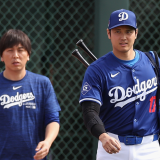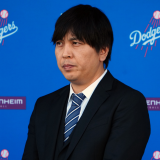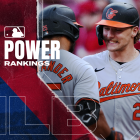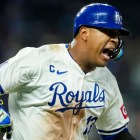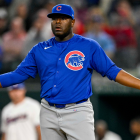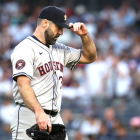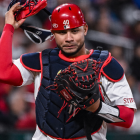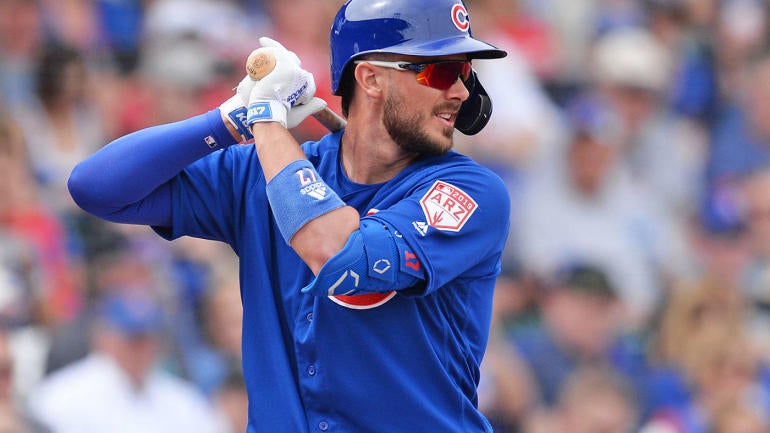
The Chicago Cubs and third baseman Kris Bryant have avoided arbitration, ESPN's Jeff Passan reports on Friday. Bryant and the Cubs settled on a one-year, $18.6 million deal for the 2020 season. No, Bryant wasn't a free agent, this settlement came on the deadline for teams and arbitration-eligible players to submit salary figures.
Bryant, 28, hit .282/.382/.521 with 31 home runs, 77 RBI and a .903 OPS in 147 games last season. Normally, him agreeing to a deal with the Cubs and avoiding arbitration wouldn't really be news, other than for those who meticulously track salary figures as it relates to the luxury tax.
This one is a bit bigger, though. Here are four reasons why.
1. The Grievance
Bryant and his agent Scott Boras long ago filed a service-time manipulation grievance with the blessing of the MLB Players Association. One might recall that Bryant was widely regarded as a can't-miss prospect who dominated spring training in 2015 after dominating every level of the minors in the previous two years. The Cubs sent him to the minors out of camp, using the ol' "work on defense" as justification. Bryant was up after just eight Cubs MLB games, "coincidentally" meaning he couldn't hit free agency until after the 2021 season. Had he started with the club out of the spring, he would be set for free agency after 2020.
The grievance has yet to be heard. Now that Bryant's contract for 2019 is set, this should be wrapped up soon. Speaking of ...
2. Trade value
There have been two things really standing in the way of the Cubs' ability to deal Bryant this offseason, should they so choose. First, the grievance needs to be settled, so everyone knows if we're talking about one or two years of Bryant for the Cubs' prospective trade partner. Second, Josh Donaldson still needs to sign. Yes, he's going to cost a lot more money, but he's likely to get a four-year deal and he doesn't cost the acquiring team prospects or MLB-ready players. Bryant is only one (but likely two) years away from free agency and would also cost talent in return. Yes, he's much younger than Donaldson, but Donaldson finished with a 6.1 WAR compared to Bryant's 3.6 (per baseball-reference.com) last season, so it wasn't particularly close.
3. It's only one year
Surely the Cubs were trying to get Bryant to agree to a two-year deal, which would have rendered the grievance as moot and allowed everyone to just move on knowing Bryant was under contract through 2021 regardless (and with a set salary instead of having to go to arbitration next offseason). There was also the remote possibility of a big-time extension. That possibility remains, but don't count on it in the near future.
4. Good faith?
It's probably a stretch to suggest as much, but Bryant/Boras agreeing with the Cubs on a figure instead of taking them to arbitration while also awaiting the grievance ruling might be a sign that the two sides haven't necessarily soured on one another, they are just conducting business.
As noted above, the next step needs to be the grievance -- which the overwhelming majority of people in the know believe the Cubs will win -- followed by the Cubs either trading Bryant, working to extend him or simply sitting content to let him play out his final two years in Chicago.
If Bryant does win the grievance, the Cubs surely head into the season with him. In this case, however, if they fall out of contention come July, he'll most certainly be dealt with the Cubs looking to restock their mostly-barren farm system with the return.
See? There are a many more moving parts here than for what would normally be a simply "the Cubs and Bryant avoided arbitration" situation.








